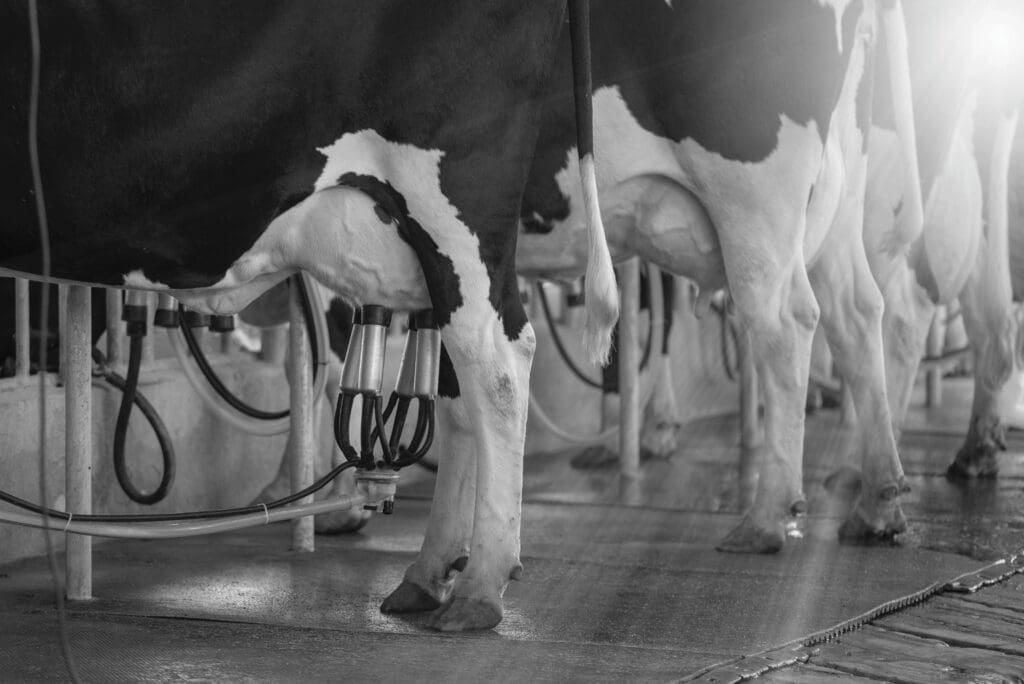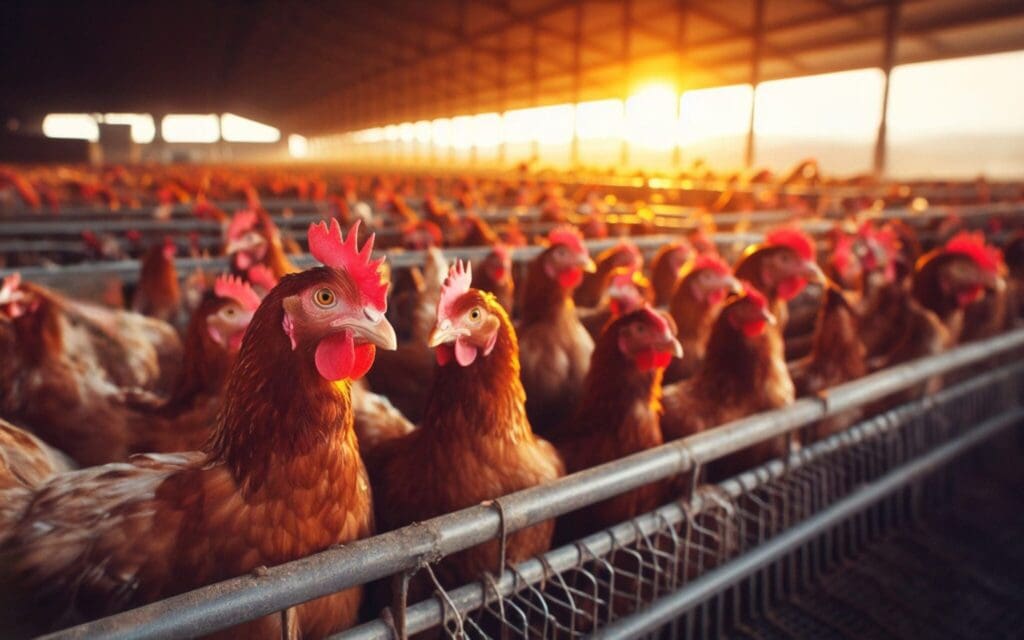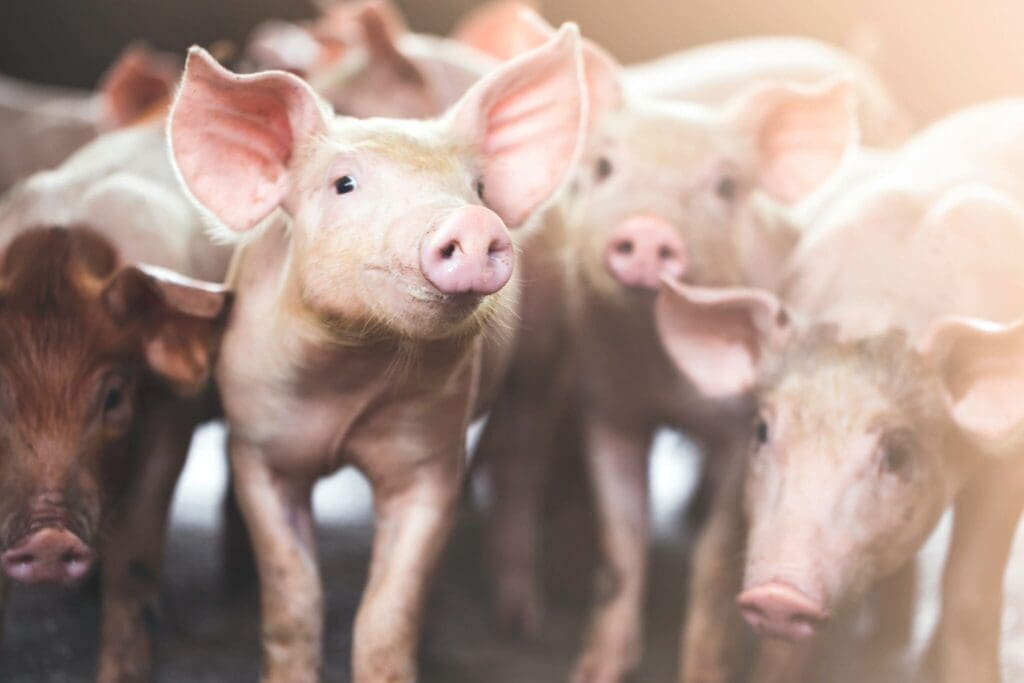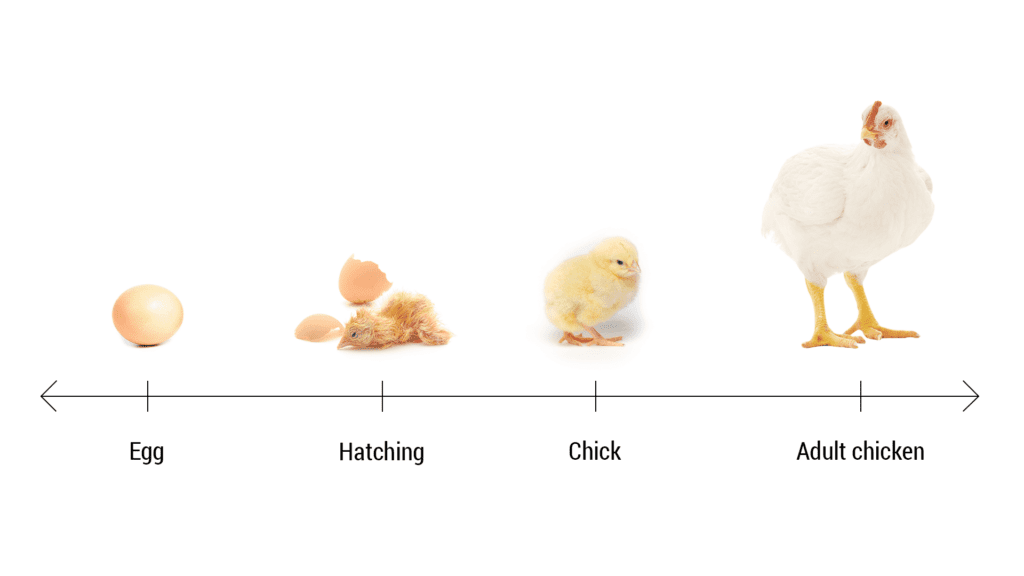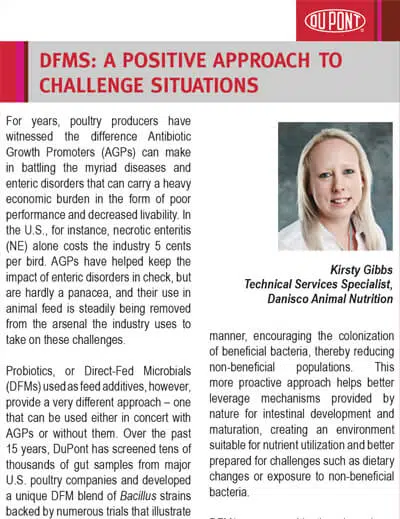For years, poultry producers have witnessed the difference Antibiotic Growth Promoters (AGPs) can make in battling the myriad diseases and enteric disorders that can carry a heavy economic burden in the form of poor performance and decreased livability. In the U S , for instance, necrotic enteritis (NE) alone costs the industry 5 cents per bird. AGPs have helped keep the impact of enteric disorders in check, but are hardly a panacea, and their use in animal feed is steadily being removed from the arsenal the industry uses to take on these challenges.
Probiotics, or Direct-Fed Microbials (DFMs) used as feed additives, however, provide a very different approach – one that can be used either in concert with AGPs or without them. Over the past 15 years, DuPont has screened tens of thousands of gut samples from major U.S. poultry companies and developed a unique DFM blend of Bacillus strains backed by numerous trials that illustrate the benefits of actively promoting a positive microbial environment in the gut of young broilers.
The GI tract of a broiler chick can face numerous challenges in its short life, even before its microbiota has matured and stabilized. Colibacillosis, a systemic E. coli infection, can impact livability in the first week of life At around 14 days, Coccidiosis, the most well-characterized predisposing factor for NE can ensue, disrupting the bird’s intestinal microbiota and resulting in reduced gut function and bird performance as well as increased diarrhea. This increases wet litter, potentially leading to footpad dermatitis. Typically in the later stages of the broiler’s short life, Campylobacter, a major cause of human gastroenteritis, colonizes distal sections of the bird’s gut, increasing the potential for food safety concerns.
AGPs suppress some of these challenges in a non-specific manner, reducing the overall microbial load in the GI tract and decreasing competition between microbiota and the host for ingested nutrients. They also help suppress microbial populations that may otherwise flourish if the opportunity arises, such as Clostridium perfringens, the causative agent of NE.
DFMs, on the other hand, support microbiota development in a positive manner, encouraging the colonization of beneficial bacteria, thereby reducing non-beneficial populations. This more proactive approach helps better leverage mechanisms provided by nature for intestinal development and maturation, creating an environment suitable for nutrient utilization and better prepared for challenges such as dietary changes or exposure to non-beneficial bacteria.
Chemuniqué empowers feed and food producers with the most innovative animal performance solutions, enabling our clients to consistently advance the efficiency of production.
